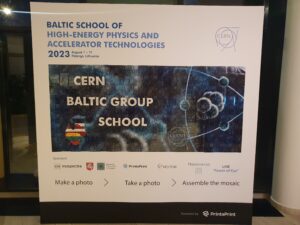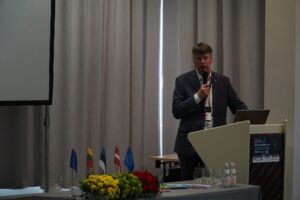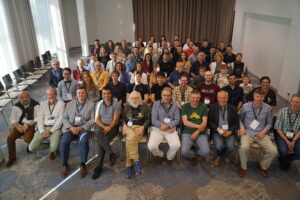On 7–11 August, a large group of young scientists (doctoral students, master’s students and young doctors) gathered in Palanga to expand and deepen their knowledge in the field of high-energy physics and accelerator technology. The 3rd international summer school High-Energy Particle Physics and Accelerator Technologies (HEP&AT) of the European Organisation for Nuclear Research (CERN) Baltic Group (CBG) was held there.
This year Kaunas University of Technology (KTU) was the main organiser of this summer school. Young researchers from Estonia (University of Tartu, Tallinn University of Technology), Latvia (Riga Technical University), Germany (Goethe University Frankfurt, Justus Liebig Universität Gießen), Netherlands (University of Amsterdam), Switzerland (University of Zurich), Czech Republic (Czech Technical University), United States of America (University of Cincinnati), Lithuania (Vilnius University, Vytautas Magnus University, Kaunas University of Technology, and Lithuanian University of Health Sciences) participated in the event.




